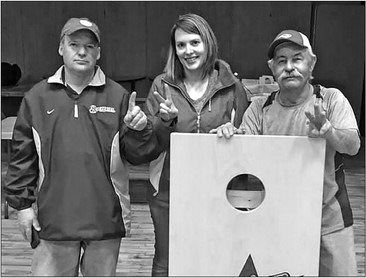From Dorchester to Las Vegas


Dad, daughter find a home on pro circuit
On its face, the game of cornhole is simple. A weighted cloth bag is tossed onto a wooden recepta...


Dad, daughter find a home on pro circuit
On its face, the game of cornhole is simple. A weighted cloth bag is tossed onto a wooden recepta...